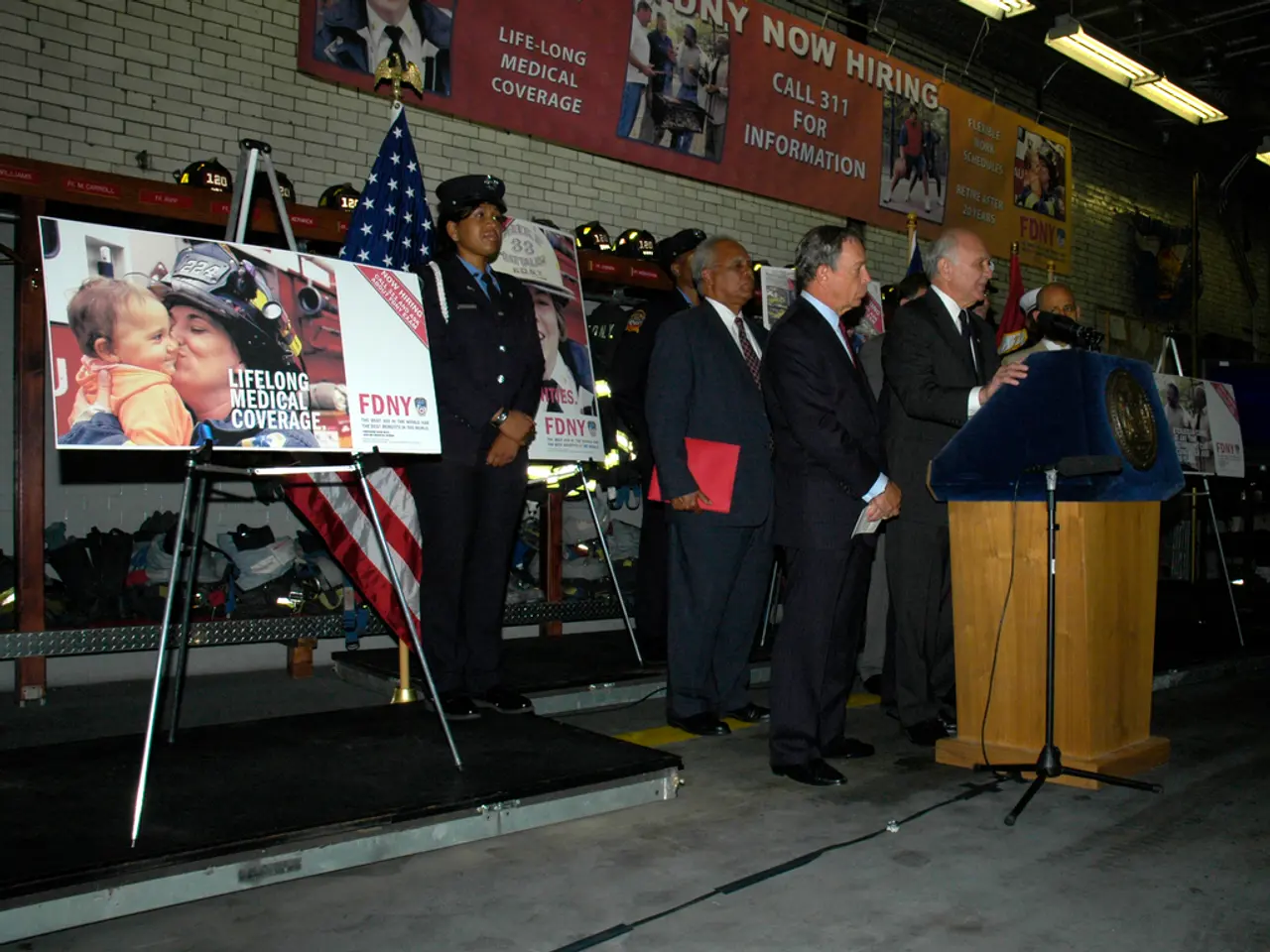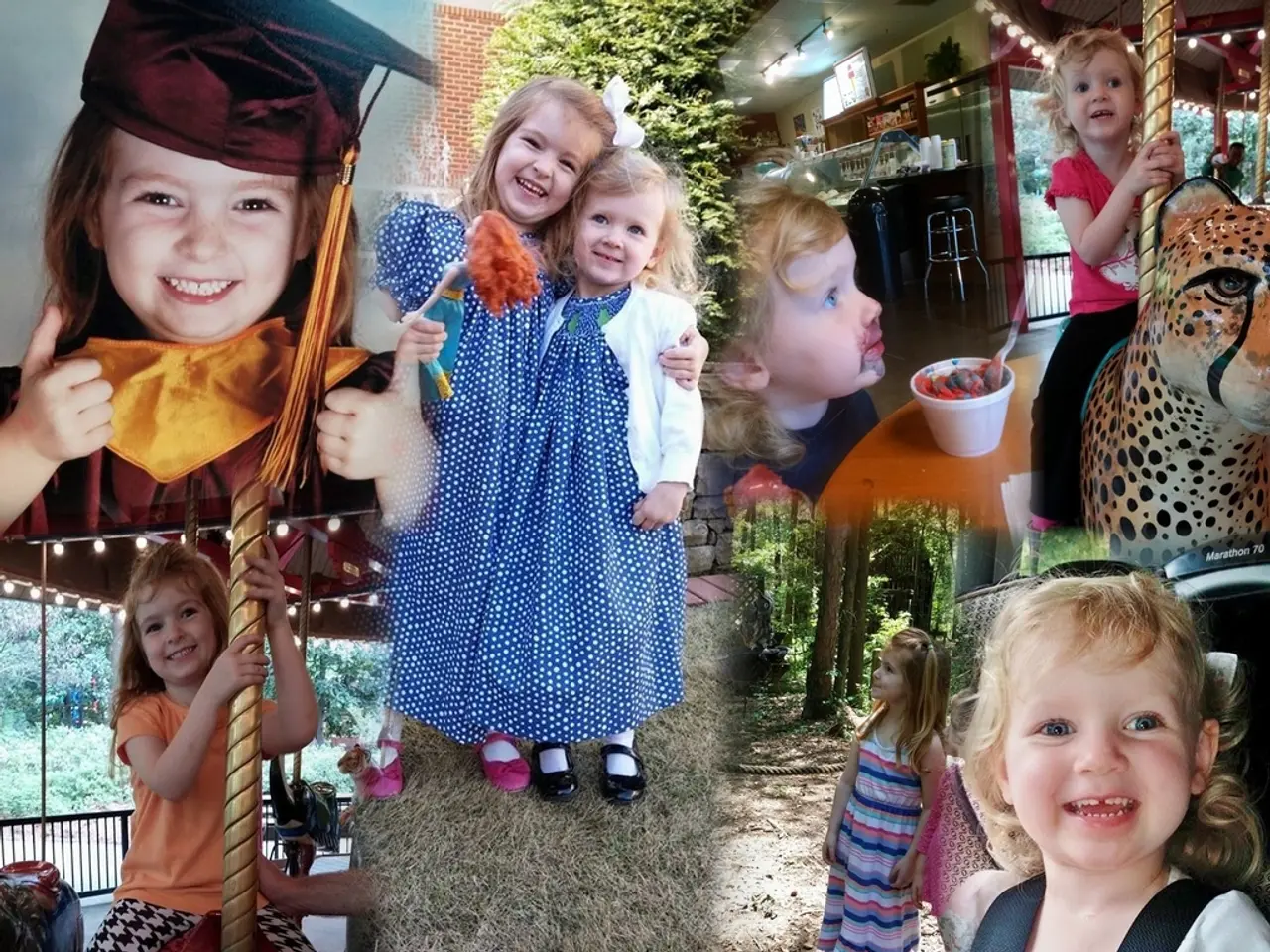Guide to Crafting a Political Identity
In today's connected world, social media plays a pivotal role in real-time communication, storytelling, audience engagement, and amplifying a brand message for politicians. A strong personal brand is essential for politicians to connect with voters, build trust, and influence public perception positively.
Effective personal branding involves identifying unique qualities, crafting a clear message, defining the audience, and aligning actions and content with brand values. Building a distinct, consistent, and relatable identity is crucial for a politician's personal brand. A politician's identity is defined by core values, tone, visual presentation, policy focus, and how the politician wants to be perceived by constituents.
A website acts as a digital headquarters, providing controlled, credible, and central access to a politician's story, platform, media, and contact information. Having a logo, colour scheme, and consistent visual elements strengthens recognition and professionalism in both online and offline campaigns.
Authenticity is key in building deeper trust and emotional connections with voters. Responding to negative publicity with authenticity, clarifying facts, reinforcing values, and redirecting focus to a positive record and ongoing goals is crucial.
Politicians, especially independents, can benefit from positioning themselves as "fresh alternatives" to traditional party candidates by emphasising integrity, community ties, real-world experience, and accessibility to build trust and relatability with voters. Female politicians can counteract biases by developing strong, value-driven, authentic personal brands and using social media to reshape public perceptions and increase visibility.
Message tailoring is essential—campaigns should use data-driven insights to craft nuanced messages that resonate with various demographic groups, ensuring communication is relevant and respectful. Delivering these messages across multiple channels, including social media, traditional media, and in-person events, maximises reach and reinforces the candidate's brand commitment to inclusivity.
To effectively engage on social issues, politicians should adopt unique, meaningful messaging that goes beyond clichés, demonstrating accountable and sustained commitments aligned with their values to build deeper connections with their audience.
Strategic alliances with influencers or community leaders can amplify credibility, broaden the audience, and signal alignment with local or cultural values. Focusing on relatable issues, building a strong social media presence, engaging locally, showcasing personal values, and being consistent with messaging are key strategies for young politicians building a brand from scratch.
In summary, a politician’s personal brand today thrives on authenticity, strategic message tailoring, active digital engagement, and genuine community connection, all supported by data insights and responsiveness to social and cultural contexts.
- Politics and entertainment often intertwine on social media, as politicians utilize it for ads and storytelling to engage with their audience.
- A politician's blog can serve as a platform to express their views on general news, policy-and-legislation, and social-media, contributing to their branding efforts.
- Effective use of social media can help politicians build a strong personal brand, enabling them to connect with voters, influence public perception, and foster trust.
- In building their personal brand, politicians should focus on crafting unique messages that align with their values and resonate with their audience, avoiding clichés and fostering accountability.
- Developing strategic alliances with influencers or community leaders on social media can help broaden a politician's reach, amplify their brand, and signal alignment with local or cultural values.







